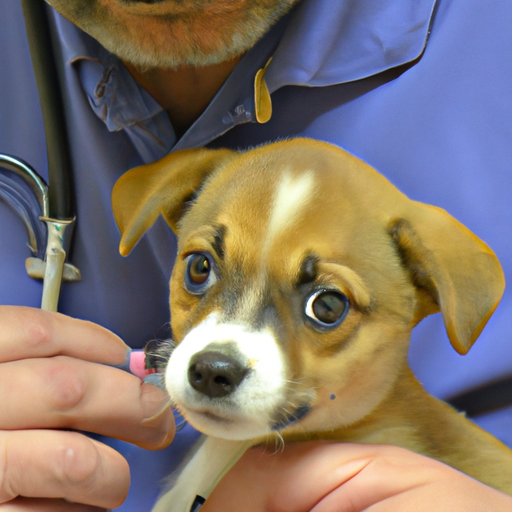As a caregiver for your furry friend, knowing when to give them their first rabies shot is of utmost importance. This guide will provide you with all the necessary information and answer your most pressing questions.
Understanding Rabies
Rabies is a fatal, viral disease that affects the central nervous system of warm-blooded animals, including dogs. It’s transmitted through the bite of an infected animal. The disease is almost always deadly once symptoms appear. Hence, prevention is the key, and that’s where the rabies vaccine comes into play.
The Importance of Rabies Vaccination
Rabies vaccination serves two primary purposes:
- Protecting your pet from the deadly disease
- Preventing the spread of rabies to humans
In many parts of the world, rabies vaccination for dogs is not only recommended, but also legally required. This is due to the public health risks that rabies poses.
When Should Your Dog Get Its First Rabies Shot?
A puppy can receive their first rabies vaccination when they are around three to four months old, or as soon as they are weaned. Veterinarians may postpone the vaccination to as late as six months if the dog is not in good health.
| Age of Puppy | Rabies Vaccination |
|---|---|
| 3-4 months | First rabies shot |
| 1 year | Booster shot |
Regular Rabies Vaccination Schedule
After the initial vaccination, a booster shot should be given one year later. The frequency of the subsequent vaccinations depends on local laws and the type of vaccine used.
- Some areas require annual boosters.
- Others require a booster every three years.
Always consult with your vet to determine the best vaccination schedule for your dog.
Potential Side Effects of Rabies Vaccination
While rabies vaccines are safe for most dogs, they can cause side effects in some. These may include:
- Fever
- Sluggishness
- Loss of appetite
- Swelling at the vaccination site
If your dog exhibits any unusual behavior following vaccination, it’s crucial to contact your veterinarian immediately.
FAQ
1. Why is the rabies vaccine so important?
Rabies is a deadly disease that can be transmitted to humans. Vaccinating your dog is the best way to prevent this.
2. Can puppies get rabies shots?
Puppies should get their first rabies shot when they are 3-4 months old or soon after they are weaned.
3. What if my dog misses a booster shot?
If your dog misses a booster shot, consult your vet. They will likely recommend administering the missed booster as soon as possible.
4. Are there side effects to the rabies vaccine?
Yes, some dogs may experience side effects such as fever, sluggishness, and loss of appetite. Contact your vet immediately if you notice any unusual behavior following vaccination.
5. How often should my dog get a rabies vaccine?
After the initial shot at 3-4 months and a booster at one year, the frequency of vaccination depends on local laws and the type of vaccine used. Consult with your vet to determine the best schedule for your dog.
In conclusion, as a caregiver, your dog’s health is in your hands. Ensuring they receive their rabies vaccination at the appropriate time and maintaining the schedule throughout their life is crucial in protecting not only your beloved pet but also your family and community from this deadly disease.



